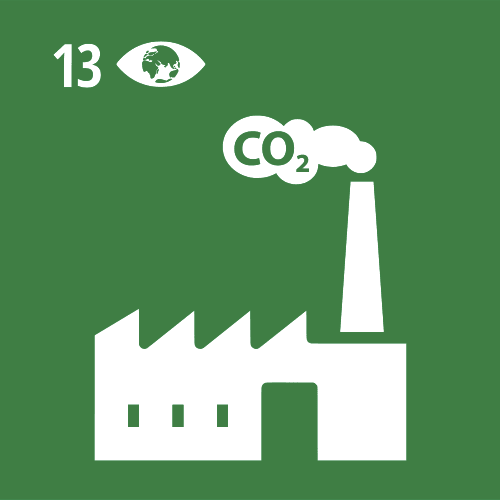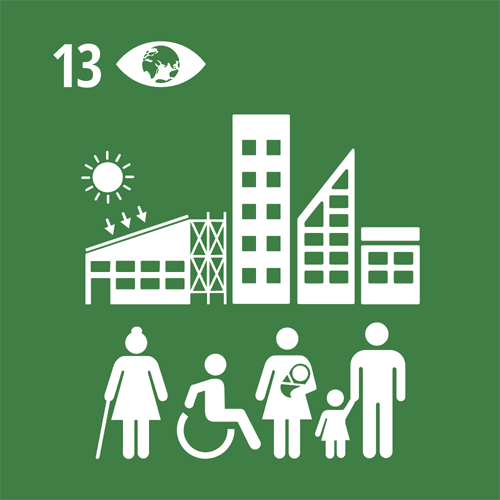Take urgent action to combat climate change and its impacts.
Climate change is one of the major challenges of our society since it leads to many adverse impacts on ecosystems, economic sectors, and human health and well-being. Extreme weather and climate-related events resulting from climate change impact the availability of necessities like fresh water, food security, biodiversity and they lead to hazards such as floods and droughts. Anticipation and prevention of the consequences of climate change demand all of us to do a transition in our economies and our way of life.
SDG 13 aims to strengthen the resilience of countries and their adaptive capacity to climate-related hazards and natural disasters by integrating climate change mitigation and adaptation measures into national strategies, policies and planning. On the European level, the European Green Deal wants to engage the EU in the challenge of a “climate-neutral” Europe by 2050.
This needed transition to greener economies and behaviours requires awareness-raising and new capacity to confront this challenge. The demand for new skills goes from new high-skills (e.g. development of new technologies, renewable energy), to the engagement of individuals, companies and institutions towards adapted strategy and actions. All sectors are concerned: from big companies to small and micro-businesses, private and public. And many jobs can become green jobs.
Trainers and teachers can help learners to better understand how climate change can impact their daily life and work environment. Learners should also become aware of their contribution to climate change in order to analyse it and define new methods and attitudes to better contribute to mitigation and adaptation.
SDG13 seeks to remind us to implement the commitment to the United Nations Framework Convention on Climate Change and its further developments.










